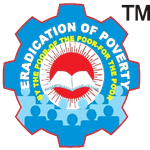Human Rights
Human rights are the foundation upon which we build a world free from poverty and inequality. Here's how prioritizing human rights contributes to our mission of poverty eradication:
- Dignity and Equality: Every individual, regardless of their economic status, possesses inherent dignity and rights. Poverty undermines this dignity and perpetuates inequality. Upholding human rights means ensuring that all people have equal opportunities to access resources, services, and opportunities necessary for a life of dignity.
- Right to Education: Education is a powerful tool for breaking the cycle of poverty. Ensuring universal access to quality education, free from discrimination, is essential for empowering individuals to improve their socio-economic status and contribute meaningfully to society.
- Right to Health: Poverty often leads to inadequate access to healthcare, exacerbating health disparities and perpetuating a cycle of illness and poverty. Guaranteeing the right to health means providing affordable and accessible healthcare services to all, regardless of their financial circumstances.
- Right to Work and Fair Wages: Everyone has the right to work in conditions that are safe, just, and dignified. This includes ensuring fair wages, decent working conditions, and protection against exploitation. Addressing poverty requires creating opportunities for meaningful employment and ensuring that workers receive fair compensation for their labor.
- Social Protection and Safety Nets: Human rights principles demand the establishment of social protection systems that safeguard the most vulnerable members of society. This includes access to social assistance programs, such as food assistance, housing support, and unemployment benefits, to prevent individuals and families from falling into poverty due to unforeseen circumstances.
- Gender Equality: Poverty disproportionately affects women and girls due to systemic gender inequalities. Promoting gender equality is not only a matter of human rights but also a crucial strategy for poverty eradication. Empowering women economically, ensuring equal access to education and healthcare, and addressing discriminatory laws and practices are essential steps towards achieving this goal.
- Participation and Empowerment: Upholding human rights requires the meaningful participation of all individuals in decision-making processes that affect their lives. Empowering marginalized communities to advocate for their rights and participate in shaping policies and programs aimed at poverty eradication is essential for creating sustainable solutions.
- Accountability and Transparency: Governments and institutions have a responsibility to respect, protect, and fulfill human rights, including the right to freedom from poverty. This requires transparency in governance, accountability mechanisms, and effective remedies for individuals whose rights have been violated.


Some benefits of integrating human rights principles into efforts to eradicate poverty:
Upholding human rights ensures that every individual, regardless of their economic status, is treated with dignity and respect. By prioritizing human rights in poverty eradication efforts, we affirm the equal worth and inherent rights of all people, contributing to a more equitable and just society.
Human rights-based approaches empower marginalized communities to claim their rights and participate in decision-making processes that affect their lives. By addressing the root causes of poverty, such as discrimination and exclusion, these approaches promote the inclusion and empowerment of those who are often most vulnerable to poverty.
Addressing poverty through a human rights lens promotes social cohesion and stability by reducing inequalities and fostering inclusive societies. By creating opportunities for meaningful participation and inclusion, we can build trust between communities and institutions, strengthen social bonds, and mitigate the risk of social unrest and conflict.
Human rights-based approaches to poverty eradication promote sustainable development by addressing the underlying structural causes of poverty, such as discrimination, inequality, and exclusion. By promoting economic, social, and environmental rights, we can ensure that development is inclusive, equitable, and environmentally sustainable, benefiting present and future generations.
